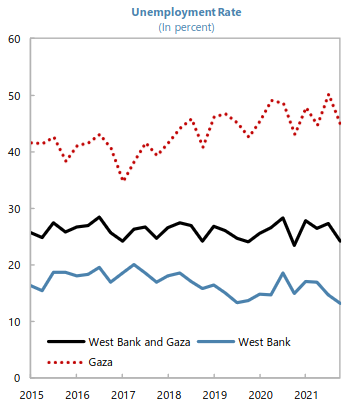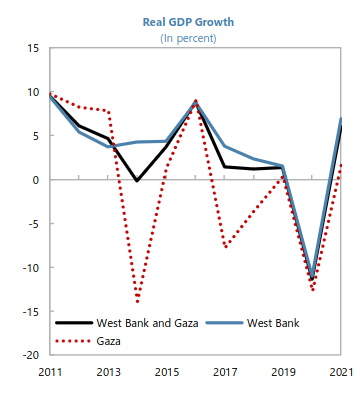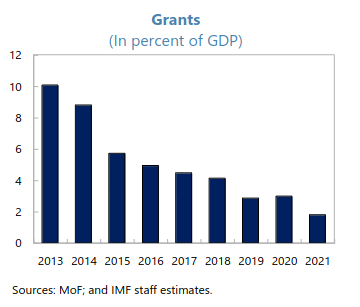October 11, 2023
World financing
Profiting from war, misery, poverty, and the financing of the response to those things is the hallmark of global capitalism. Capitalist profit seeking helps create and sustain these problems, then facilitates the extraction of even more to "help" deal with those problems.
We do not even have to look at profiting from war munitions to get at this point clearly.
International organizations like the IMF and World Bank are attempting to raise their financing (and re-financing) funds so that they can compete with China's direct funding. Those funds are filled by money contributions from richer countries.
What people forget is that China is the second largest contributor to the World Bank's International Bank for Reconstruction and Development and International Finance Corporation.
What are these organizations doing that China wants a piece of? Well, apart from maintaining the status quo around the world with borrowing and then repaying under specific conditions, (then bankrupting those countries, re-negotiating the debt to keep those countries stuck on financing, all the while squeezing the life-blood out of those economies), it is also the only game in town for providing financial support in certain parts of the world.
Financial support comes with gains in the form of government spending on supporting corporate profits of international firms that exploit these World Bank arrangements.
The Chinese Belt and Road initiative is about 1/10th the size of the spending from the other financial institutions. It operates rather differently from the IMF, but these monies are still provided as financing and it still gets back into the Chinese economy.
The IMF, is a little bit of a different enterprise, but operates in a more aggressive way on making sure exchange rates are not affected by the wrong governments borrowing money from the wrong countries in the wrong currency. That is, it has to be in USD.
The IMF is also tasked with surveillance of the global economy, overseeing international financial systems and money printing in member countries.
This "surveillance" is really about pricing sovereign debt.
You would not know that surveillance and exchange rates are the primary goal of the IMF if you go to their webpage where they talk about poverty reduction and dealing with climate change.
The clarity of mission of the IMF cannot be glossed over, however:
“We cannot let the temptation to address every problem pull the IMF away from its core mission of macroeconomic and exchange-rate surveillance and guidance,” said Jay Shambaugh, under-secretary for international affairs at the Treasury, in a speech last month.
The main issue facing these "global" institutions (part of the UN, based in the USA) is the dysfunction brought by the Republican Party. The radical wing of this party does not understand or agree that the global mission of the USA is to sustain capitalism.
Bill Hagerty, a Tennessee Republican senator, says he “wholeheartedly” believed that more needed to be done by the west to counter China’s influence, but adds that the IMF and World Bank “must not waste their capacity advancing partisan priorities like climate change and social justice”.
The disunity in the USA's political system has opened-up an opportunity for China and other nations to present alternatives that are less multilateral. These alternatives have their own issues.
The Left have long identified the IMF and World Bank Group of organizations for what they are: maintainers of USA-style capitalism around the world using the financial carrot instead of the stick of war. Countries getting into financial trouble—a quasi-natural result of economic activity—must be dealt with and the idea is that bailing out countries is better than the alternative. Alternatives that too easily lead to violent conflict.
And, because they are capitalist creations, the entire program is set-up to support profits of companies based in the countries lending the money. This is not charity, after all.
Reform?
In the previous decade, the institutions have declined in power to enforce these mandates. Several defaults, in-fighting between countries on financing, the rise of the BRICS-style countries that actually have resources to finance their neighbours, China's network of financing programs, and gaming this system has undermined the institutions' power.
The IMF is almost redundant in its surveillance. The G20, the G7, the IMF, the World Trade Organization, the World Bank, the OECD, and the European Union all engage in almost exactly the same "surveillance" of financial systems in countries around the world. And, these other players provide advice to markets and policy prescriptions at odds with the IMF's strict guidance.
Add to all this that the IMF has a terrible track record of achieving its "stated" policy outcomes and you have a problem of legitimacy.
So, the IMF is trying to reform.
There is talk of expanded or reformed voting structures to allow more say by China and developing countries. Much of the opportunity for these reforms revolves around responses to climate change financing.
The world will need to more than triple its investment in energy infrastructure from the current $770 billion per year to $2.2-2.8 trillion per year by the early 2030s that is then sustained to 2050 and beyond.
This is not money that currently exists in many of the non-Western countries were investments need to happen. And, discussions at the recent UN talks were all about how to finance the global transition away from fossil fuels not just in transport, but in producing food and to pay for climate change "mitigation" activities.
The U.N. reported last week that 3.3 billion people live in countries that spend more on interest payments than on health and education. Yet debt relief is a solution that none of the decisive players are incentivized to advocate for.
The reform agenda of these multilateral institutions is to off-set China's finance-based influence around the world. The reforms must be put into context of the new geopolitical realities facing the Western "friends".
Why should the Left pay attention to these institutions to get a handle on where and how this money is flowing?
You only have to look at the response to the global inflation and affordability crisis to see what happens when the orthodox economic analysis is left to drive an agenda unchallenged: workers are left to deal with paying the bill.
An alternative exists.
Palestinian economy
The economy in Gaza is basically non-existent.
Unemployment is around 45% compared with the West Bank's 13%. And well over half of those in Gaza experience extreme poverty.

International grants to Palestinians have declined even though Covid took a heavy economic toll on the territories. The decline in grants means that the economy is also in a spiral downward.


Donor aid is well below financing levels needed to sustain the economy and public debt has skyrocketed as a result. The only thing off-setting this decline a little bit is the jobs some Palestinians have inside Israel where they send money either back into Gaza via transfers.
Most of the economic activity comes from consumption and most of that is driven by those who have work in the government structures inside the Palestinian Authority.
The PA raises no money from taxes or fees from Gaza or East Jerusalem, but that is where 1/3 of its financing goes—mostly to Gaza. This simply finances pension and public sector salaries of education, poverty outreach, and health service workers. Some activity is also from UN refugee programs, though this is basic life support.
Public sector workers wages are essentially all that sustain any economic activity in Gaza.
This economic situation is part of the policy framework that Israel has established. Even without the oppressive apartheid policies and structural violence experienced by those in Gaza and the West Bank on a daily basis, we all know what happens in these economic situations. Without jobs and economic activity, there is no work. Without work, there is no production, no program for life.
The IMF and World Bank Group were set-up to support economies in this kind of situation because we understand what happens when people live in poverty, have no hope, and no economic stability.
Economics is an important part of any peace program. Without a sustainable economic framework war is inevitable.
I know this is the last piece of the current nightmare that people want to think about. Violence has descended and there seems to be no way to stop the continuing catastrophe. But, if there is any future that isn't just mass carnage, it will have to include multilateral support for not just political and diplomatic talk, but an economic program that is indigenous and sustainable.
You can tell those who seek a real solution to the conflict by whether or not they include a sustainable and endemic economic system in their proposals.
I fear that given our current global economic institutions and geopolitics, even this is too much to hope for.